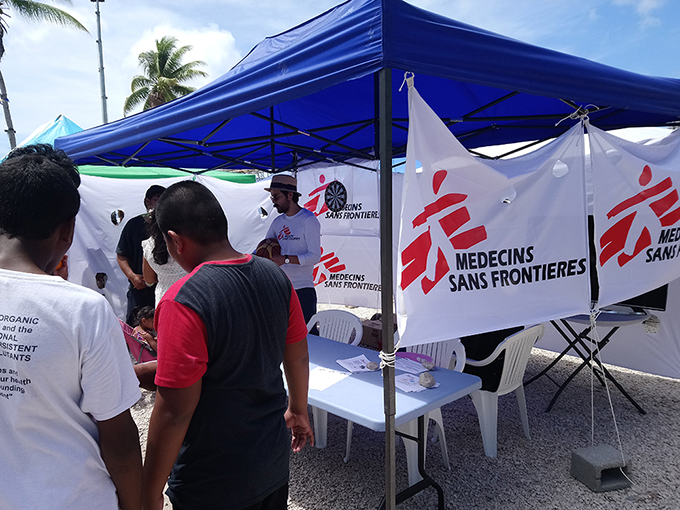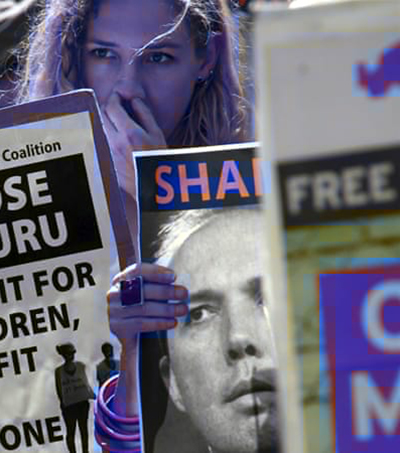 Doctors Without Borders staff at a display tent during Nauru’s 50th independence celebrations in January. Image: MSF
Doctors Without Borders staff at a display tent during Nauru’s 50th independence celebrations in January. Image: MSF
- Asia Pacific
- Asia Pacific Report
- Asylum Seekers
- Children
- Doctors Without Borders
- Health and Fitness
- Human Rights
- Medecins Sans Frontieres
- Mental Health
- MIL-OSI
- MSF
- Nauru
- Nauru detention centre
- Nauru human rights
- Pacific Media Centre
- Pacific Region
- Pacific Report
- PMC Reportage
- Politics
- Refugees
- Reports
Loss of MSF mental health carers from Nauru heightens fears for children
Pacific Media Centre Newsdesk
Health and human rights advocates fear the mental ill-health of refugees on Nauru could worsen following the Pacific government’s move to scrap a vital support service.
Doctors Without Borders (MSF – Médecins Sans Frontières) was told on Friday its free psychological and psychiatric services, provided to both Nauruans and refugees since November 2017, were “no longer required”.
The medical aid agency was given 24 hours to cease operations which is comprised of a clinic at the Republic of Nauru Hospital and home visits.
READ MORE: Manus and Nauru background and updates
The organisation indicated a desire to find a way to continue its work, reports Australian Associated Press.
“At this stage MSF wishes to reiterate our strong commitment to providing quality mental health care to all those in need on the island,” a spokesperson said.
“We are extremely concerned that the health of our patients may be affected by this decision and urge the authorities to grant us permission to continue our lifesaving work.”
The abrupt dismissal follows a report by two prominent Australian refugee organisations saying most refugee children on Nauru are experiencing life-threatening mental health problems, including not eating or drinking and showing suicidal symptoms.
 An Australian protest over deteriorating conditions for children at the Nauru detention centre. Image: Al Jazeera
An Australian protest over deteriorating conditions for children at the Nauru detention centre. Image: Al Jazeera
‘Add to distress’
Advocacy group Refugee Action Coalition said MSF’s absence would “add enormously to the distress among asylum seekers and refugees” because the Australian government’s contracted mental health care provider, International Health and Medical Services, was “stretched to breaking point”.
The Department of Home Affairs said on Saturday MSF’s dismissal was a matter for the Nauruan government and that it would continue to provide “appropriate healthcare and mental health support to refugees and asylum seekers through contracted service providers”.
MSF uses more than 30,000 doctors, nurses and other mostly volunteer personnel to provide medical aid in more than 70 countries.
Article by AsiaPacificReport.nz
]]>





